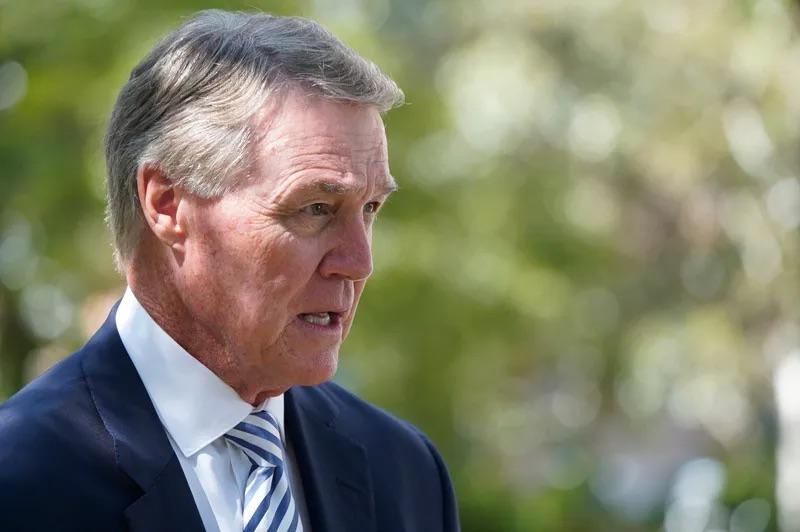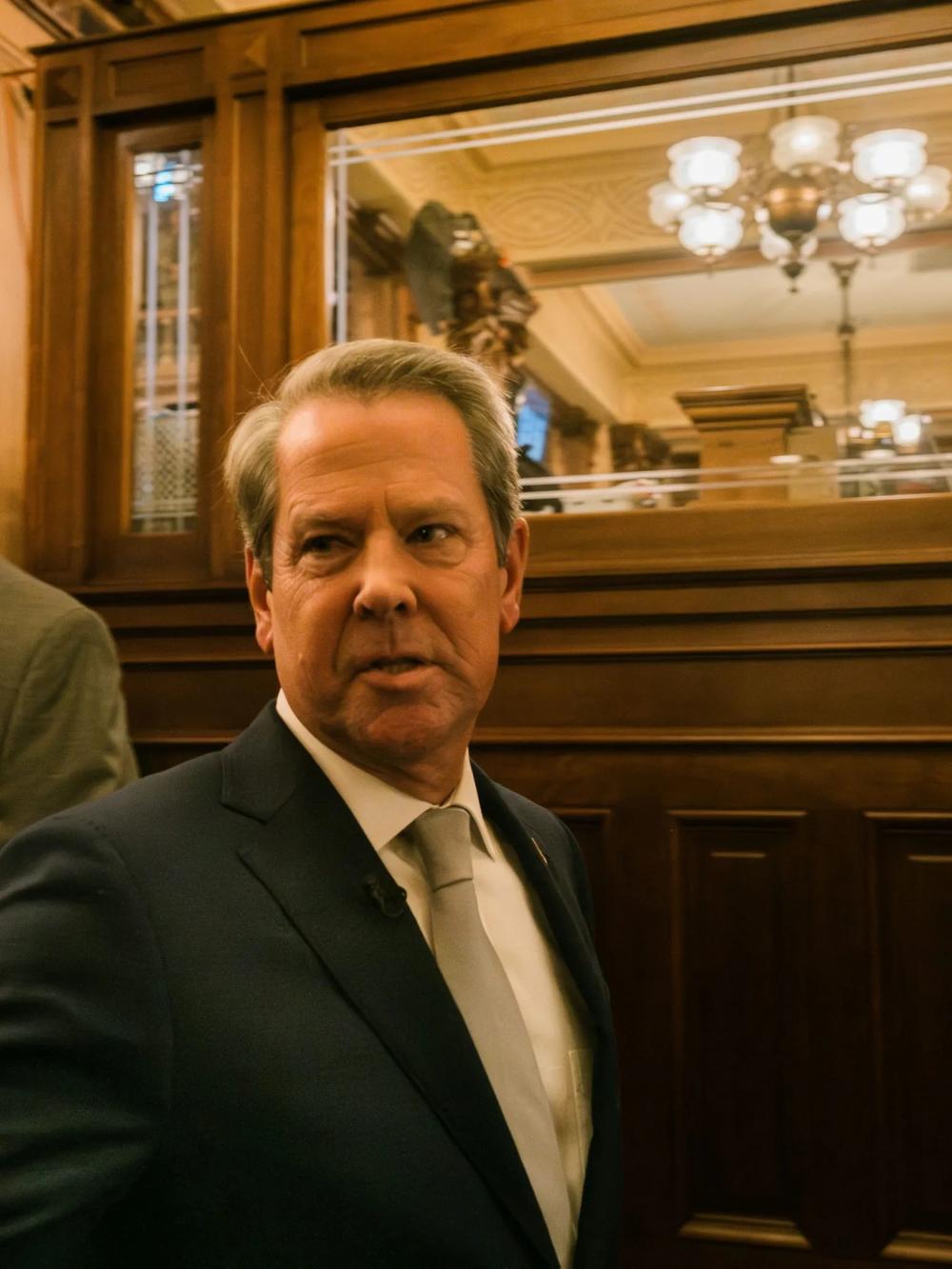
Caption
A Donald Trump cutout outside Trump’s Presidential rally in Savannah, GA, Sept. 24, 2024.
Credit: Justin Taylor/The Current

A Donald Trump cutout outside Trump’s Presidential rally in Savannah, GA, Sept. 24, 2024.
Craig Nelson, The Current
For observers, any campaign rally is an opportunity to gauge who’s up and who’s down, who’s in and who’s out.
Case in point: Trump’s speech at the Johnny Mercer Theatre on Tuesday, which was prime viewing for Georgia GOP watchers in a state where the Republicans are experiencing a Cold War.
Standing on the riser closest to Trump behind his podium was Marolyn Overton, the longtime resident of The Landings and founder of Ladies on the Right, the assembly of Republican stalwarts who have supported the former president since his election in 2016 and for the most part believe the lie that he won the state in 2020, not the current president, Joe Biden.

Former U.S. Sen. David Perdue outside a Donald Trump Presidential rally, Savannah, GA, Sept. 24, 2024.
During his 81-minute speech, Trump singled out for praise former U.S. Sen. David Perdue of Sea Island, who lost his bid for a second, six-year term to Democrat Jon Ossoff in 2020, and lost the 2022 Republican gubernatorial primary to incumbent Gov. Brian Kemp — all despite Trump’s endorsement (“He’s really working hard”)
The former president also touted Lt. Gov. Burt Jones (“great gentleman, a really fine guy, a fantastic political person”), Coastal Georgia Congressman Earl “Buddy” Carter (“warrior . . . great guy”) and Carter’s north Georgia counterpart, Marjorie Taylor Greene (“fantastic person”).
Finally — and perhaps most notably — Trump gave a tip of the hat to Kemp, with whom he has had a tempestuous relationship, largely over the governor’s refusal to challenge the results of the 2020 presidential election in Georgia.

Brian Kemp.
Kemp didn’t attend the event — he was out of state fundraising for other Republican causes, including Pennsylvania Senate candidate Dave McCormick, and for a group run by Trump’s former vice president turned nemesis, Mike Pence.
Trump complimented Georgia’s top Republican (“He’s been fantastic. Really has been fantastic . . . . Great support”) but didn’t spell out exactly what Kemp was doing to aid his presidential bid.
The former president also glided over many of the Kemp administration’s hallmarks: the car facilities and battery manufacturing plants that Kemp brought to Georgia, the governor’s plan to reform Medicaid that is heralded in conservative Republican circles as a roadmap to federal entitlement program reforms, and the low unemployment and low inflation numbers that Kemp supporters say have made him the most popular Republican in the state.
In Trump’s neck-and-neck race with Democratic Vice President Kamala Harris, Kemp’s support for the Republican ticket is considered crucial to winning over Georgia’s moderate and establishment Republicans, a sizable number of whom have wearied of the party’s presidential nominee.
With Jones, one of Kemp’s rivals, sitting in the front row at the auditorium, and many of Savannah’s top business leaders absent like the governor himself, state Republican leaders are no doubt wondering in what direction the Georgia GOP will move in after the November election.
By January, should Trump lose again, or four years from now, should he win, the Republican Party’s Trump era will end. Who will succeed him is anyone’s guess. So is whether there is anything such as Trumpism without Trump.
Jones has made no secret of his ambitions for the governor’s office, and Carter has voiced his interest in a U.S. Senate seat. Perdue’s plans are unknown.
The Tide brings news and observations from The Current’s staff. This story comes to GPB through a reporting partnership with The Current.